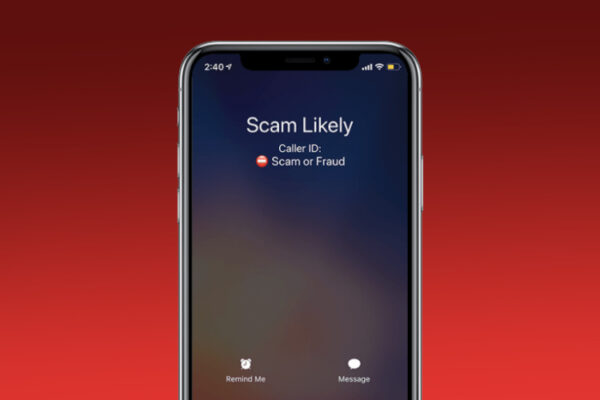warning: 18774530539, 1-877-453-0539, 18885776012, 8774530539, 18774530539, 7786121000, 18002401627, 6043421000, 8888112323, 514 375 2413, 778-612-1000, 8773627434, 4169355555, 18773627434, 778 612 1000, (662) 255-3743, 8663102355, 8885776012, 604-342-1000, +1 (514) 375-2413.
In today’s digital age, where communication is highly accessible and convenient, there’s a downside that many Canadians have encountered – spam calls. These unsolicited and often fraudulent calls have become a nuisance for individuals across the country. In this article, we will delve into the alarming rise of spam calls in Canada, the notorious number 1-877-453-0539, and steps you can take to protect yourself from falling victim to these scams.
Introduction
In an era dominated by smartphones and constant connectivity, the rise of spam calls has emerged as a significant concern in Canada. These unsolicited and often fraudulent calls not only invade our privacy but also pose serious security risks. In this article, we will explore the origins of spam calls, their impact on individuals, and effective strategies to counteract this modern-day annoyance.
Understanding Spam Calls
Spam calls, colloquially known as robocalls, are automated telephone calls delivering pre-recorded messages. The primary goal of these calls is to deceive recipients into revealing sensitive information or extort money. Fraudsters behind spam calls employ various tactics to manipulate individuals, making it crucial to understand their strategies and remain vigilant.
The Infamous 1-877-453-0539 Number
Among the numerous spam calls reported in Canada, the number 1-877-453-0539 has gained notorious fame. This number is associated with a range of scams, from impersonating government officials to offering fake financial opportunities. Canadians must be cautious when encountering this number and refrain from engaging with its callers.
How Spam Calls Impact Canadians
The impact of spam calls extends beyond mere annoyance. Many Canadians have fallen victim to scams, resulting in financial losses and compromised personal information. The emotional toll of being targeted by such deceptive tactics can also lead to heightened stress and anxiety.
Recognizing Spam Calls from Legitimate Calls
Distinguishing spam calls from legitimate ones can be challenging, as scammers often employ sophisticated techniques. However, there are telltale signs to watch out for, such as unsolicited requests for personal information, urgency in taking immediate action, and offers that seem too good to be true.
Tips to Protect Yourself
Shielding yourself from spam calls requires a proactive approach. Start by registering your phone number on the National Do Not Call List to reduce the frequency of unsolicited calls. Additionally, consider using call-blocking apps, staying cautious about sharing personal information, and educating yourself about prevalent scam tactics.
Reporting and Taking Action
Reporting spam calls is essential for authorities to track and combat fraudulent activities. If you receive a spam call, make sure to report it to the appropriate agencies, such as the Canadian Anti-Fraud Centre. By taking this step, you contribute to a safer telecommunications environment.
The Role of Service Providers
Telecommunication service providers also play a role in mitigating the impact of spam calls. They are continually developing and implementing technologies to identify and block spam calls before they reach your phone. Keeping your phone’s software updated and utilizing your service provider’s built-in features can aid in this effort.
Legal Measures against Spam Calls
Canadian law prohibits unsolicited telemarketing calls without the recipient’s consent. Familiarizing yourself with these regulations can empower you to take legal action against persistent spammers. Legal measures not only protect you but also contribute to the broader fight against fraudulent activities.
Staying Cautious in the Digital Age
As technology evolves, so do the tactics employed by scammers. Staying cautious and informed is essential to avoid falling victim to spam calls. Regularly educate yourself about the latest scams, share your knowledge with friends and family, and maintain a skeptical mindset when dealing with unsolicited calls.
Conclusion
In a world where connectivity is essential, protecting oneself from the rising tide of spam calls is paramount. By staying informed, cautious, and proactive, Canadians can fortify their defenses against these deceitful tactics. Remember, awareness is the first line of defense in this ongoing battle against spam calls.
FAQs About Spam Calls
- Q1: Can spam calls lead to identity theft?
A1: Yes, some spam calls aim to gather your personal information for identity theft purposes. Be cautious and never share sensitive data over the phone.
- Q2: Are all unsolicited calls considered spam?
A2: Not necessarily. Some unsolicited calls might be from legitimate organizations, but it’s crucial to verify the caller’s identity before sharing any information.
- Q3: How do scammers benefit from spam calls?
A3: Scammers use spam calls to trick individuals into divulging personal information, which they can later exploit for financial gain or other malicious purposes.
- Q4: What should I do if I’ve already fallen for a scam?
A4: If you suspect you’ve been scammed, contact your financial institution immediately to secure your accounts. You should also report the incident to the authorities.
- Q5: Can I completely eliminate spam calls?
A5: While it’s challenging to completely eliminate spam calls, following preventive measures like call-blocking apps and registering on the Do Not Call List can significantly reduce their frequency.

